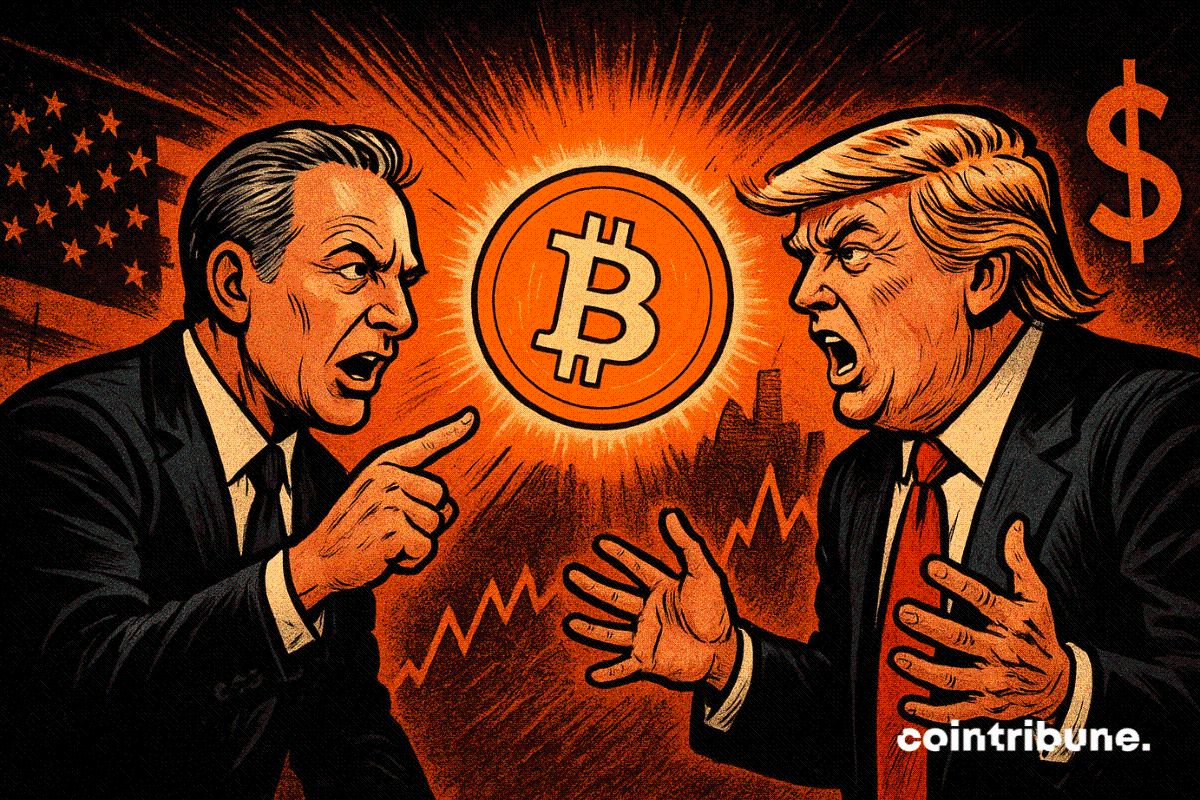Two leading contenders for key seats at the Fed made it clear on Tuesday that they do not believe President Donald Trump’s tariffs are causing inflation, according to CNBC interviews.
Steven Miran and James Bullard, both speaking separately, rejected the position taken by many economists outside the White House that the trade duties will lead to persistent price increases.
Trump has nominated Miran, the current chair of the White House Council of Economic Advisers, to finish the final months of the term left open after Governor Adriana Kugler resigned last Friday.
Bullard, who previously served as president of the St. Louis Fed, has been named in reports this week as one of at least six possible candidates to replace Jerome Powell when Powell’s term as chair ends in May 2026.
Neither committed to a firm position on future rate votes, but spoke in ways that fit the president’s stance that inflation is not a serious threat.
Miran rejects tariff-inflation link after latest CPI data
Miran said predictions that tariffs would cause long-lasting price spikes have simply not materialized. He stated there was “no evidence whatsoever of any tariff-induced inflation” and pointed out that the gloomy forecasts made by some experts “just haven’t panned out.”
His comments followed the release of July’s consumer price index, which showed prices rising 2.7% year-over-year. That figure remains above the Fed’s official 2% target but came in slightly lower than Wall Street expected. The report adds to the argument from Trump’s administration that the current inflation numbers do not justify keeping interest rates at their current level.
Trump used the CPI release to renew his criticism of Powell and to push for steep rate cuts. Posting on Truth Social, he said Powell’s slow decision-making had caused “incalculable” damage and repeated his demand for the Fed to lower its benchmark rate by three percentage points. He also claimed the economy’s current strength has been achieved despite the central bank’s actions.
Bullard also dismissed the idea that tariffs are raising inflation. He argued that the past six months of economic data since the latest tariff measures were imposed show “very muted effects” on overall prices. In his view, any increases from tariffs are one-time adjustments to price levels, not ongoing drivers of inflation.
Bullard expects interest rate cuts to start in September
Bullard predicted that the Fed’s rate-setting Federal Open Market Committee will begin cutting rates in September. He said the committee is likely to reduce the benchmark rate by a full percentage point over the next 12 months, a move he believes would bring policy “close to” neutral.
He noted that the committee had paused its earlier rate-cut program when the tariff issue flared up six months ago. Now, he said, there is enough evidence to move forward with cuts, since neither tariffs nor taxes, in his view, are responsible for higher inflation.
Both Miran and Bullard addressed the issue of the Fed’s independence, which has been repeatedly tested during Trump’s presidency. Trump has openly criticized policymakers for not lowering rates faster, sometimes singling out Powell by name.
While avoiding direct comment on Trump’s tone, Miran stressed that the central bank should operate independently of political pressure.
Bullard said Trump “is entitled to his views,” noting the president’s background in real estate and his focus on securing low borrowing costs. He added, “Good for him. He’s got views, but a lot of people have views, and you know, if you don’t want to hear that, this is probably the wrong job.”
If confirmed, Miran will join the Fed board before year-end, while the decision on Powell’s successor will shape the central bank’s leadership through the middle of the decade. Markets are watching both developments closely, with traders already weighing the chances of aggressive easing in the coming months.
Want your project in front of crypto’s top minds? Feature it in our next industry report, where data meets impact.



